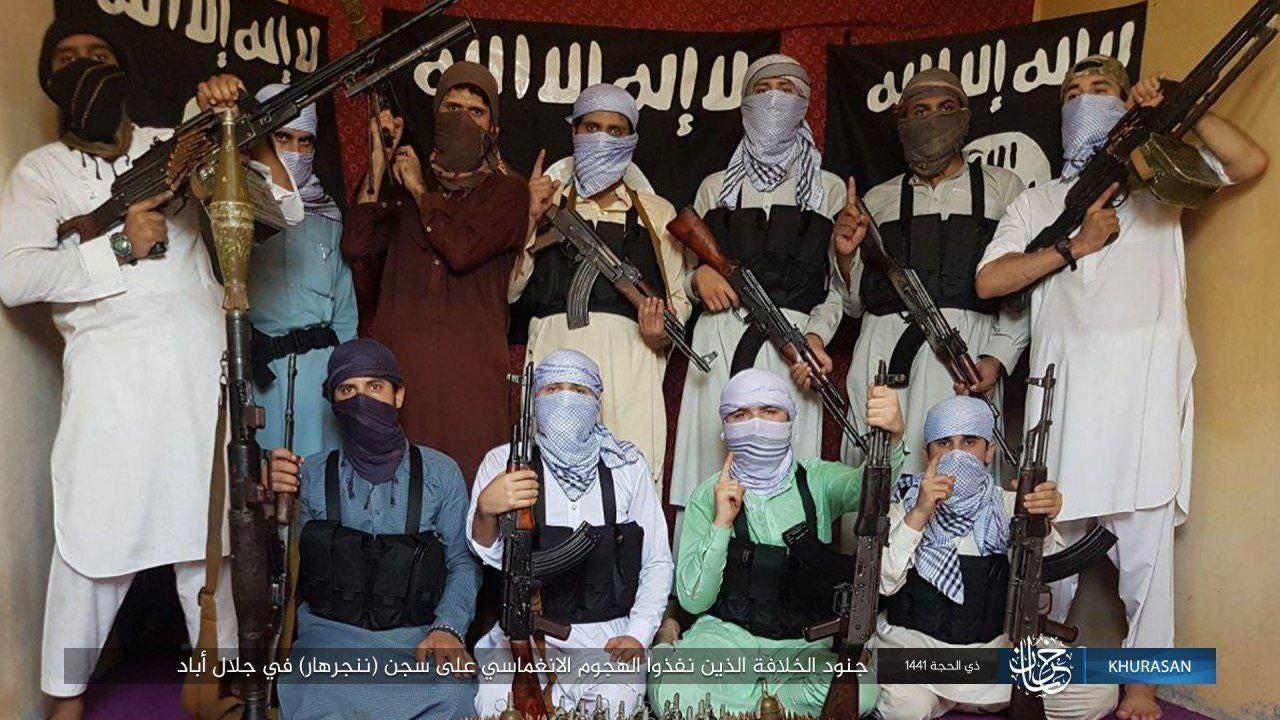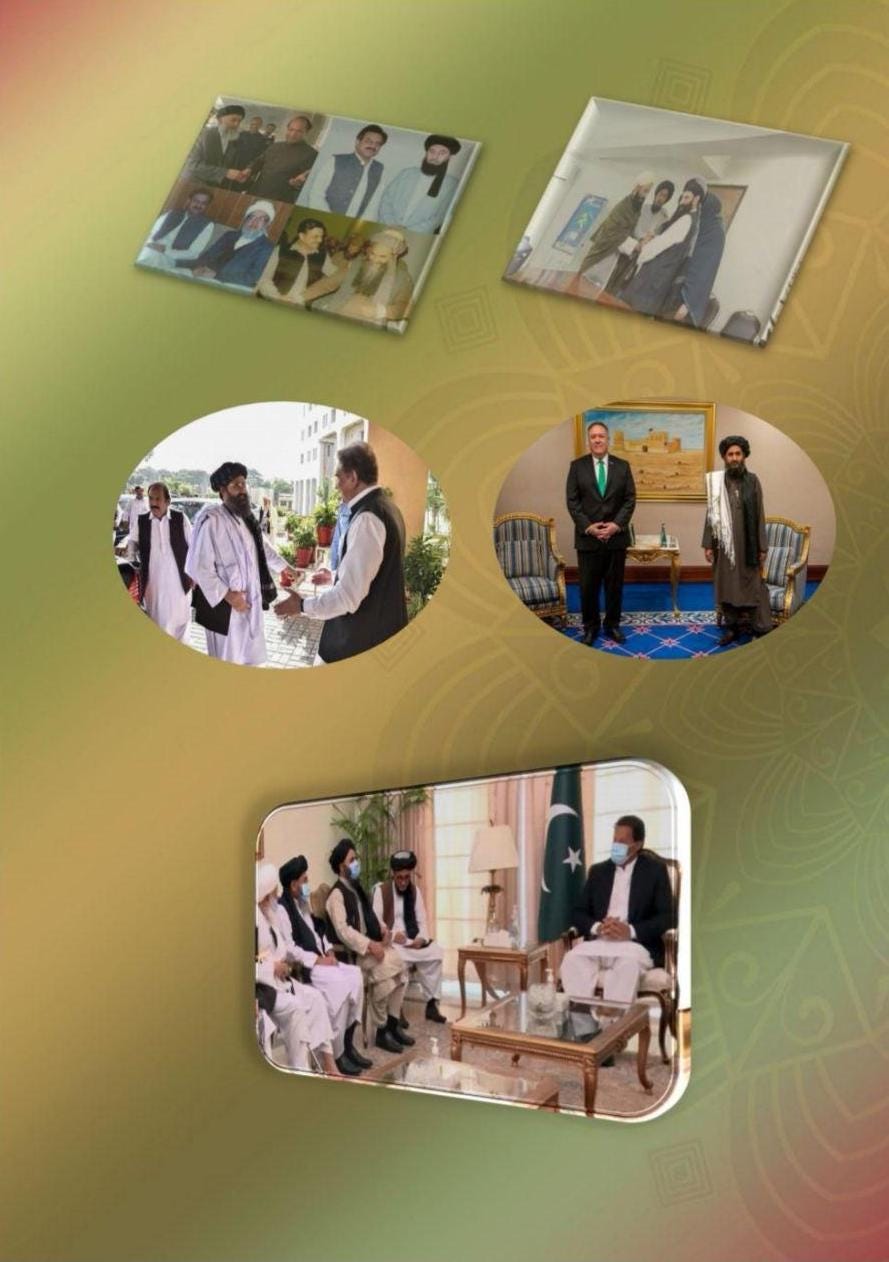Islamic State Khurasan Province Reacts to Former Afghan IS Leader’s Surrender to the Taliban
On March 4th, news from Nangarhar reported that Abdul Rahim Muslim Dost, the first Afghan who officially pledged allegiance to Abu Bakr al-Baghdadi in 2014, had surrendered to the Taliban in Jalalabad. Portrayed by the Taliban as a severe blow to Islamic State Khurasan Province (ISKP), they called Muslim Dost “the head of ISKP” – though in fact, as researcher Abdul Sayed once described, Muslim Dost abandoned ISKP in 2015 because of the brutality of ISKP first Wali Hafeez Saeed. ISKP media channels quickly reacted to this claim by issuing a short book dedicated to Muslim Dost titled “Muslim Dost ka Murtad Dost?”, “Muslim Dost (friend) or Infidel Dost (friend)?”. While the book does not display Al-Azaim’s logo, as Abdul Sayed noted, the author Abu Musab al-Sharqawi already published two other works through channels linked to Al-Azaim, one of them regarding the Kabul Passport Office attack of December 25. But, this time, his book on Muslim Dost was released by Al-Azaim channel itself.
Muslim Dost had already been targeted by ISKP propaganda in the past. In late August, ISKP writer Abdul Qahar published a book through Al-Azaim foundation on the Pugwash organization, which also accused Muslim Dost and his brother Badr ul Zaman of being agents of Saudi Arabia with the aim of disarming jihadist groups and forcing Salafis to accept democracy.
The author Abu Musab al-Sharqawi lashes out against Muslim Dost by calling him a spy for the CIA and the former republican government who switched to ISI and the Taliban, rejecting the notion he was ever the leader of ISKP. Abu Musab claims that several future ISKP leaders such as Hafiz Saeed Khan, Sheikh Maqbool, Sheikh Gul Zaman Fateh, Maulvi Toofan, and Jihadyar had taken refuge in the Spin Ghar valley in Nangarhar following their expulsion by the TTP as per orders of the Quetta shura, which obeys to the ISI. This prompted the Taliban and the Afghan government to initiate a hunt for the militants from Pakistan who camped in the Shinwari areas of Nangarhar. Apart from military operations, after ISKP was formed, Abu Musab claims that neighbouring countries such as Afghanistan, Pakistan, Iran, and India started to infiltrate spies into the ranks of ISKP militants; Muslim Dost is claimed to be one of them.
The booklet accuses Muslim Dost of being trained by the NDS tasked with the goal of deviating ISKP like the Afghan Taliban and Pakistani Taliban abandoned jihad.
For this, he tried to accomplish several objectives, such as:
1. Reaching the top of ISKP leadership, though Abu Musab claims he never succeeded
2. Trying to divide ISKP militants between a pro-Afghanistan and pro-Pakistan field, which for ISKP means introducing the issue of nationalism in the jihadi group
3. Trying to avoid the war in Afghanistan and directing it only towards Pakistan, as Muslim Dost holds Islamabad responsible for waging a proxy war in Afghanistan
4. Exacerbating differences Hanafis and Salafis, instigating Salafis against Hanafis
5. Slandering Hafiz Saeed Khan, arguing that the leader of ISKP should have been an Afghan and not a Pakistani from Orakzai
It is important to note that the book greatly emphasizes the issue of Hanafi and Salafi differences within ISKP by referring to Muslim Dost’s attempts of igniting conflict within the two currents and of marginalising Hanafis. Indeed, while many ISKP writings accuse the Taliban of being Hanafi/Deobandi supremacists with deviated practises, this book and others take a soft tone towards the issue by claiming that in the Islamic State, all sects (Shafi’i, Maliki, Hanbali, and Hanafi) and Salafis may maintain their differences while still being considered Muslims, once they removed their won deviated practices.
Abu Musab narrates that Muslim Dost tried hard to convince Afghan Salafis to depose Hafiz Saeed Khan as he was a Pakistani and a Hanafi, talking to senior leaders such as Saad Emarati to find supporters and even contacting IS Central leadership to raise doubts around his appointment as Wali of ISKP. He recalls that when he realised that he was not able to depose Hafiz Saeed, he fled and took refuge in Afghan government-controlled territory. From there, he continued accusing Hafiz Saeed and ISKP through several interviews, claiming the group had committed enormous atrocities against the local Shinwari tribe, who initially had hosted him, and that Hafiz Saeed was brutal and illiterate. The book claims ISKP militants tried to hunt him down without success as he fled to Khost under the protection of NDS. Nevertheless, as Abdul Sayed reported, ISKP allegedly abducted his two sons in August 2021 to question them about the exact place of their father.
The book also mentions some of Hafiz Saeed Khan’s behaviours while he was Wali of ISKP. As other ISKP statements reported in the past, Hafiz Saeed is remembered by Abu Musab and ISKP fighters in general as one of the main commanders of the group. The book mentions his campaigns in Orakzai and Mamand before joining ISKP as well as the battles he fought in the Tirah Valley while trying to rescue ISKP families from Afghan forces.
The last part of the book addresses the Taliban and Dr. Bashir, Head of Taliban Intelligence in Nangarhar, arguing that while the Taliban are claiming they delivered a severe blow to ISKP, they are lying about the actual role of Muslim Dost within ISKP. Abu Musab states that Muslim Dost never had any leadership role within ISKP, and he writes that this is the latest of a long series of attempts by the Taliban and the US and Pakistan to downplay ISKP, and, on the other hand, to discredit ISKP leadership.





